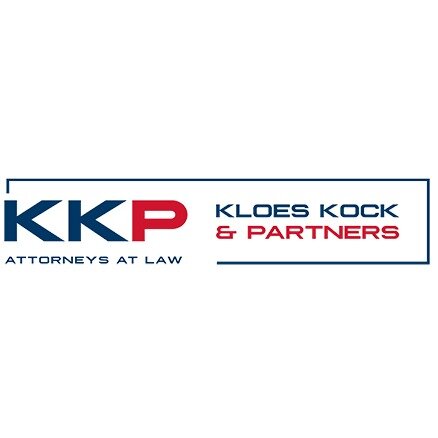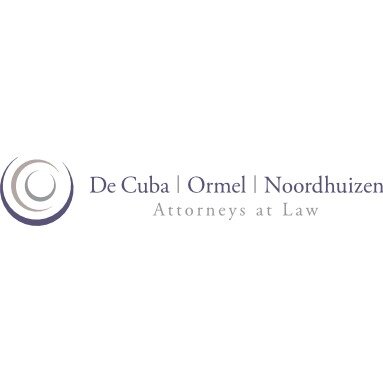Best Communications & Media Law Lawyers in Oranjestad
Share your needs with us, get contacted by law firms.
Free. Takes 2 min.
List of the best lawyers in Oranjestad, Aruba
About Communications & Media Law in Oranjestad, Aruba
Communications & Media Law in Oranjestad, Aruba, encompasses a wide range of legal issues related to broadcasting, telecommunications, the internet, advertising, and media content. This legal field is essential for protecting both consumer rights and the legal operation of media and communication businesses. Regulatory frameworks are put in place to ensure that information dissemination respects privacy rights, intellectual property, defamation laws, and other applicable regulations. Aruba, being part of the Kingdom of the Netherlands, also follows principles of Dutch law in certain areas, providing a robust legal framework for communications and media operations within Oranjestad.
Why You May Need a Lawyer
Individuals and businesses may require legal assistance in communications and media law for various reasons. Here are a few common situations:
- Starting or operating a media-related business that must comply with licensing and regulatory requirements.
- Publishing content that involves sensitive, controversial, or potentially defamatory material.
- Issues related to intellectual property rights such as copyright infringements in media products.
- Advertising and marketing disputes or compliance with regulatory standards.
- Protecting personal privacy rights online or in broadcast content.
- Litigation involving media businesses or individuals, such as defamation or slander suits.
Local Laws Overview
The local laws in Oranjestad, Aruba regarding communications and media are influenced by the regulatory standards of the Dutch legal system, while also focusing on local needs and contexts. Key aspects include:
- Telecommunications Regulation: Entities providing telecom services need to comply with regulatory measures that ensure fair competition and service quality.
- Broadcasting Licenses: Media outlets that operate in broadcasting need to secure appropriate licenses and adhere to content regulations.
- Data Protection: The law mandates the protection of individuals' data, outlining what information can be collected by media companies and how it should be managed.
- Defamation and Libel Laws: These laws protect individuals and organizations from false and damaging statements in the media.
- Internet and Digital Communication: Regulations specific to online content, privacy, and digital media practices are emphasized.
Frequently Asked Questions
What constitutes defamation under Aruban law?
Defamation in Aruba involves making false statements about someone that damage their reputation. Legal action can be pursued if these statements are made publicly without a valid defense, such as truth.
Do I need a license to start a radio station in Oranjestad?
Yes, operating a radio station in Oranjestad requires a broadcasting license. The licensing process ensures compliance with local regulations and fair usage of public airwaves.
How is intellectual property protected in media contexts?
Intellectual property rights in Aruba are protected under laws governing copyrights, trademarks, and patents. Legal protection ensures that creators can control and monetize their works.
What are the advertising standards I need to adhere to in Aruba?
Advertisements must be truthful, non-deceptive, and comply with specific regulations regarding content and target audiences. Particular emphasis is placed on protecting minors and vulnerable groups.
Can I film in public areas in Oranjestad without legal concerns?
Filming in public areas typically requires consent from the local authorities. It’s advisable to check specific local regulations and obtain necessary permits, particularly when filming may involve identifiable individuals.
What are the privacy laws regarding personal data collection by media outlets?
Media outlets must commit to transparent data collection, indicating what data is collected and how it will be used. This is to ensure compliance with privacy regulations and to protect individuals’ rights.
How can I file a complaint against a media outlet for harmful content?
Complaints can generally be filed with regulatory bodies governing media practices. It is recommended to seek legal advice to understand the proper procedures and potential remedial actions.
Are foreign media companies subject to local laws in Aruba?
Yes, when operating within Aruba, foreign media companies must comply with local laws and regulations regarding content, licensing, and broadcasting standards.
What restrictions exist for content published online in Aruba?
Online content is subject to laws preventing hate speech, defamation, and violations of privacy or copyright. It is crucial for publishers to adhere to these legal requirements to avoid penalties.
How do anti-piracy laws in Aruba affect media operations?
Piracy, including the unauthorized use of media content, is prohibited under Aruban law. Measures are in place to protect intellectual property and penalize unlawful distribution of media materials.
Additional Resources
For more information and assistance with Communications & Media Law in Oranjestad, Aruba, consider the following resources:
- Department of Telecommunications Affairs: This government body regulates telecommunications services and can provide guidance on compliance.
- Aruba Chamber of Commerce: Offers resources for businesses, including media enterprises needing legal compliance information.
- Media Regulatory Authority: Oversees broadcasting services and ensures that media entities follow necessary standards and regulations.
- Legal Aid Aruba: Provides legal assistance to individuals unable to afford a lawyer, including matters related to media law.
Next Steps
If you need legal assistance in Communications & Media Law in Oranjestad, Aruba, here are the steps you should take:
- Identify Your Legal Needs: Clarify the specific legal issues or questions you have regarding media and communications.
- Consult with a Lawyer: Seek legal counsel from a lawyer specializing in communications and media law. They can guide you through complex legal matters and ensure compliance.
- Gather Relevant Documentation: Prepare any documents or evidence relevant to your legal situation to provide to your lawyer.
- Understand Your Rights and Obligations: Ensure you have a clear understanding of your legal rights and responsibilities under local laws.
- Follow Legal Recommendations: Act on the legal advice provided to resolve your issue or achieve compliance.
Lawzana helps you find the best lawyers and law firms in Oranjestad through a curated and pre-screened list of qualified legal professionals. Our platform offers rankings and detailed profiles of attorneys and law firms, allowing you to compare based on practice areas, including Communications & Media Law, experience, and client feedback.
Each profile includes a description of the firm's areas of practice, client reviews, team members and partners, year of establishment, spoken languages, office locations, contact information, social media presence, and any published articles or resources. Most firms on our platform speak English and are experienced in both local and international legal matters.
Get a quote from top-rated law firms in Oranjestad, Aruba — quickly, securely, and without unnecessary hassle.
Disclaimer:
The information provided on this page is for general informational purposes only and does not constitute legal advice. While we strive to ensure the accuracy and relevance of the content, legal information may change over time, and interpretations of the law can vary. You should always consult with a qualified legal professional for advice specific to your situation.
We disclaim all liability for actions taken or not taken based on the content of this page. If you believe any information is incorrect or outdated, please contact us, and we will review and update it where appropriate.











